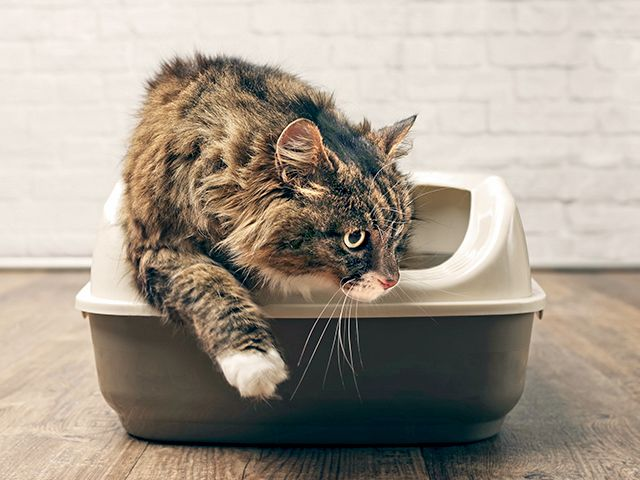How your cat's diet supports their digestion
Article

What to feed your cat with digestive sensitivities
When it comes to feeding your cat with a digestive sensitivity, there is a lot to consider when finding the optimal diet. You should be feeding your cat complete and balanced foods. However, depending on the severity of the sensitivity, your veterinarian may suggest foods with specific nutrients that directly target and support digestion.
Tailored nutrition to support digestive sensitivities in cats should include:
- Adapted levels of fat
- Highly digestible proteins
- Omega-3s such as EPA & DHA
- Robust fiber blend including prebiotic fibers
An important point to remember when choosing your cat’s diet is to make sure the new diet change is introduced gradually so their digestive tract can slowly get used to the change.
The importance of protein in your cat’s diet
General benefits of protein:
Protein is the building block of your cat’s body, from skin and hair to claws and antibodies. Amino acids from protein can be converted to glucose. This is essential for proper functioning of your cat’s brain, kidneys, and red blood cells, while providing energy.
Protein consideration for digestive sensitivities:
Highly digestible proteins can help alleviate their signs as these require the digestive tract to do less "work" when absorbing nutrients. Furthermore, diets for cats with food allergies or intolerances usually have a single protein source, such as hydrolyzed protein or proteins that are less common.
Fats in your cat's diet
Benefits of fats:
Fat is a rich energy source for your cat, contributing over twice as much energy for the same weight as proteins or carbohydrates. Essential fatty acids are also beneficial for the healthy functioning of certain organs, like skin. Additionally, adapted fat content in a diet can help supply calories to cats experiencing unwanted weight loss.
Fat considerations for digestive sensitivities:
Fortunately, cats have a high tolerance for dietary fat, so it rarely needs to be modified when a cat is experiencing digestive issues.
Cats and carbohydrates
Carbohydrates, specifically highly digestible starch sources, can provide an easy energy source for the cat with digestive problems. However, cats are carnivores, and too much starch in a cat's diet can cause digestive problems as they do not have the same capacity to digest carbohydrates as dogs (omnivores) do.
The role of fiber in your cat's food
The right mix of fibers in your cat’s food can contribute significantly to the health of their gastrointestinal tract. A diet with a robust fiber blend can feed beneficial bacteria in the intestines, support healthy stool quality, and overall support gastrointestinal health. Prebiotics are fermentable fibers that feed beneficial bacteria so the bacteria can confer benefits to the gastrointestinal tract.
Other key nutrients to support your cat
Feeding your cat a complete and balanced diet that is properly formulated to meet essential nutrient needs is important for optimizing digestive health. Even nutrients required in small amounts (e.g. vitamins and minerals) are critical for supporting a healthy gastrointestinal tract. The diet should be highly palatable, as some cats with digestive problems do not have a hearty appetite.
However, make sure that you visit your veterinarian if you believe your cat is experiencing digestive difficulties—they’ll be able to advise on the best course of action and will recommend the right steps to take in supporting your cat's health.
Find a vet
If you have any concerns about your cat’s health, consult a vet for professional advice.
Like & share this page